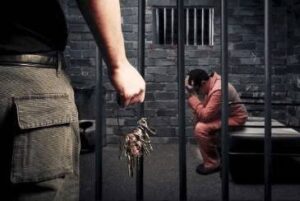Do You Need Legal Help?

"Deandra Grant Law fights hard for their clients and is always willing to go above and beyond. They are the best firm for DWI cases in DFW and beyond. Definitely hire them to represent you in any pending cases."
- P. Williams

"Deandra Grant made a tough situation so much better. She listened to my concerns and helped me so much with my case. I would recommend her to anyone needing legal services."
- M. Haley

"Deandra Grant Law handled my case with diligence and professionalism. Deandra Grant's reputation is stellar and now I know why. She has a team of individuals who provide quality service."
- N. Coulter
As Seen On





A Fighting Team On Your Side
Since 1994 when our doors opened, Deandra Grant Law has helped thousands of clients get their DWI charges reduced or dismissed. We're ready to fight on your behalf.

Managing Partner
Partner & Criminal Division Chief
Criminal Division Senior Associate
Criminal Division DWI Trial Chief
Immigration Division Chief & Criminal Division Deputy Chief
Criminal Division Associate

Download Our Free Texas Criminal Guide
Learn what you should and shouldn't be doing to help your criminal defense case.
Texas Gun Crime Lawyers
If you’ve found yourself on this page – it’s likely that you’re facing the daunting reality of gun crime charges in Texas. We understand that this is a stressful and uncertain time for you, and we want you to know that you’re not alone. The Texas gun crime lawyers at Deandra Grant Law are here to offer our unwavering support and expert legal guidance as you navigate through this challenging situation.
The Gravity of Gun Crime Charges
Gun crime charges in Texas, can lead to serious consequences that may have a lasting impact on your life. These charges encompass a range of offenses involving the use, possession, or distribution of firearms. Whether you’re facing charges related to illegal possession of a firearm, unlawful discharge, or even more severe charges like armed robbery, it’s crucial to recognize the gravity of the situation.
Firearm Laws in Texas
In Texas, anyone over 18 may possess a firearm if they have not been convicted of a felony. Carrying a gun is illegal if you do not have a license. The firearm must be concealed even if you have a permit to carry it. If an officer has stopped you while you are driving, for example, they may discover the firearm and attempt to arrest you for gun possession charges.
Texas Firearms Defense
Our Texas Gun Rights Attorneys offer legal representation for cases involving:
- Unlawful carrying of a firearm or gun
- Possession of a prohibited firearm
- Possession of an unregistered firearm
- Convicted felon in possession of a firearm
- Conceal and carry law violations
- Discharging or brandishing a weapon
- Possession of an illegal firearm
Even though every citizen of the U.S. has the right to gun ownership, law enforcement may still find a reason to charge you with a gun crime in Texas. If you have been arrested, our Texas criminal defense lawyers understands that this is a stressful and overwhelming time. This is why seeking legal representation is critical if you are accused of violating any firearm or gun laws.
Understanding the Potential Consequences
When it comes to gun crime charges, the potential consequences can be severe. Depending on the specific charges and circumstances of your case, you could be looking at hefty fines, probation, mandatory counseling, or even significant jail time. Moreover, a conviction for a gun crime can have far-reaching implications beyond the legal penalties, affecting your employment opportunities, reputation, and overall quality of life.
Why You Need Our Texas Gun Crime Lawyers
Facing gun crime charges on your own can be overwhelming and risky. This is where our experienced Texas Gun Crime Lawyers come into play. Our team has a deep understanding of Texas gun laws and the complexities of the legal system. We are dedicated to providing you with a robust defense that aims to secure a positive outcome for your case.
Leveraging Knowledge
At Deandra Grant Law, we believe in the power of a strong defense strategy. Our Texas Gun Crime Lawyers will meticulously examine the details of your case, identifying any potential weaknesses or violations of your rights. We understand the importance of safeguarding your rights throughout the legal process, and we’ll work tirelessly to ensure that you are treated fairly under the law.
The Advantage of Local Experience
When it comes to defending against gun crime charges in Texas, having a team with local experience can make all the difference. We are intimately familiar with the local court systems, judges, and prosecutors, giving us a unique advantage in building a defense tailored to the specifics of your case. Our goal is to leverage our knowledge to pursue positive results on your behalf.
Your Future is Our Priority
We recognize that a gun crime charge can cast a shadow of uncertainty over your future. However, it’s important to remember that you have rights, and you deserve a chance to present your side of the story. Our Texas Gun Crime Lawyers are committed to helping you pursue positive results, whether that means negotiating for reduced charges, dismissal, or acquittal.
A Range of Gun Crime Cases We Handle
At Deandra Grant Law, our attorneys have a proven track record of successfully defending clients against a wide array of gun crime charges. We offer comprehensive legal representation for cases involving:
Unlawful Carrying of a Firearm or Gun: Charges related to carrying a firearm without the proper permits or licenses.
Possession of a Prohibited Firearm: Charges stemming from the possession of firearms that are considered illegal under Texas law.
Possession of an Unregistered Firearm: Charges involving firearms that have not been properly registered as required by law.
Convicted Felon in Possession of a Firearm: Charges faced by individuals with prior felony convictions who are found in possession of firearms.
Conceal and Carry Law Violations: Violations of Texas’s concealed carry laws, including carrying a concealed firearm without the proper permits.
Discharging or Brandishing a Weapon: Charges related to the improper use of firearms, such as firing or displaying a weapon in a threatening manner.
Possession of an Illegal Firearm: Charges involving firearms that are prohibited by federal or state law.
Guiding You Through Complex Legal Proceedings
Navigating the legal system can be overwhelming, especially when you’re facing serious gun crime charges. The team at Deandra Grant Law is here to guide you through every step of the process. We’ll provide you with clear explanations of your rights, potential defenses, and the best strategies for achieving a successful outcome. Our goal is to ensure that you are well-informed and empowered to make the right decisions for your case.
Determining Your Best Chances for Success
No two gun crime cases are alike. Our experienced Texas Gun Crime Lawyers understand the nuances of Texas gun laws and the intricacies of legal proceedings. We’ll meticulously examine the details of your case, identify any potential weaknesses in the prosecution’s argument, and develop a robust defense tailored to your unique circumstances. Our priority is to give you the best chances for a successful outcome, whether through negotiation, dismissal, or acquittal.
Related Blogs
Avoiding Critical Mistakes After a Gun Crime Arrest in Texas
Being arrested for a gun crime in Texas, can be a distressing and overwhelming experience. During this challenging time, it’s important to be cautious and avoid common mistakes that could potentially harm your case. Here are some critical mistakes to steer clear of:
1. Talking to Law Enforcement Without Legal Representation
One of the most common mistakes individuals make after a gun crime arrest is speaking to law enforcement without a lawyer present. Anything you say to the police can be used against you in court, so it’s crucial to exercise your right to remain silent until you have consulted with an experienced Texas Gun Crime Lawyer.
2. Admitting Guilt Without Legal Advice
Admitting guilt, even unintentionally, can seriously impact your case. It’s important to remember that you have the right to remain silent and the right to legal counsel. Consulting with an attorney before making any statements can help you avoid self-incrimination and protect your rights.
3. Neglecting to Document Details
As time passes, it can be easy to forget important details about the circumstances of your arrest. It’s essential to document everything you remember, including the events leading up to the arrest, any interactions with law enforcement, and any potential witnesses. This information could prove invaluable in building your defense.
4. Ignoring Legal Deadlines and Procedures
The legal process following a gun crime arrest involves various deadlines and procedures. Failing to meet these deadlines or follow proper procedures can harm your case. Consulting with a knowledgeable Texas Gun Crime Lawyer from Deandra Grant Law can ensure that you meet all necessary requirements and avoid unnecessary complications.
Frequently Asked Questions for Those Arrested for Gun Crimes in Texas
If you’ve been arrested for a gun crime in Texas, it’s important to remain calm and exercise your right to remain silent. Do not provide any statements to law enforcement without first consulting with an experienced Texas Gun Crime Lawyer. Reach out to our team at Deandra Grant Law as soon as possible to discuss the details of your case and receive proper legal guidance.
Gun crime convictions can lead to serious consequences, including hefty fines, probation, jail time, and the establishment of a criminal record. Additionally, a conviction can impact your employment prospects, housing opportunities, and personal relationships. It’s crucial to seek legal representation to minimize the potential repercussions of a conviction.
Yes, it’s possible to face charges for possessing a firearm even if you were unaware that it was illegal. Ignorance of the law is not a valid defense. However, an experienced Texas Gun Crime Lawyer can help evaluate the circumstances of your case and determine the best defense strategy based on the specifics of your situation.
While it’s important to be respectful, it’s generally advisable to exercise your right to remain silent and consult with an attorney before providing any information to law enforcement. Anything you say can be used against you in court. Having legal representation during interactions with law enforcement can help protect your rights and ensure that you don’t inadvertently incriminate yourself.
In some cases, it may be possible to have your gun rights restored after a gun crime conviction. However, this process can be complex and varies based on the specific circumstances of your case. Consulting with an experienced Texas Gun Crime Lawyer can help you understand your options and navigate the process if applicable.
Deandra Grant Law specializes in providing expert legal representation for individuals facing gun crime charges in Texas. Our experienced Texas Gun Crime Lawyers will thoroughly evaluate the details of your case, identify potential defenses, and guide you through the legal process. We’ll work tirelessly to achieve a positive outcome, whether through negotiation, dismissal, or acquittal.
During your free consultation with Deandra Grant Law, you’ll have the opportunity to discuss the specifics of your case with our attorneys. We’ll listen to your concerns, answer your questions, and provide you with an overview of potential legal strategies. This consultation is a chance for us to understand your situation and offer you informed guidance on how to proceed.
It’s crucial to seek legal representation as soon as possible after your arrest for a gun crime. The earlier you involve an experienced Texas Gun Crime Lawyer, the better your chances of building a strong defense strategy and navigating the legal process effectively. Time is of the essence, so don’t delay in contacting us at Deandra Grant Law.
Criminal Defense Client Story
This client story is for educational purposes only.
In the heart of Texas, a man named Andrew found himself at a crossroads he never could have predicted. Arrested for possession of an unregistered firearm, his world was suddenly plunged into uncertainty. Faced with the weight of the legal system bearing down on him, Andrew’s future seemed to hang in the balance.
But within the labyrinth of challenges, a guiding light emerged: Deandra Grant Law. And at the helm was attorney David Holmes, a steadfast beacon of hope in Andrew’s darkest hours.
As the courtroom doors swung open, Andrew stood alongside his dedicated legal advocate, David Holmes. With a presence that exuded confidence and expertise, David walked the path with Andrew, shouldering the burdens of legal intricacies that seemed insurmountable.
Throughout the journey, David listened to Andrew’s fears, understood his worries, and believed in his innocence. It wasn’t just a legal defense; it was a partnership formed on trust and shared determination. David was more than a lawyer; he was a guiding hand, a supportive friend in times of uncertainty.
The trial unfolded with David’s mastery of the law, his eloquent arguments carving a path through the confusion. He meticulously unveiled the intricacies of Andrew’s case, shedding light on the nuances that made all the difference. Each moment in that courtroom was a testament to David’s dedication and the strength of Andrew’s resolve.
And then, as the gavel struck, the verdict was delivered: Not Guilty. It was a moment that resonated far beyond the courtroom walls. Andrew’s life was no longer defined by a charge; it was a triumph, a turning point that ignited a newfound sense of possibility.
In Deandra Grant Law, Andrew found not just a legal team, but a family—a group of professionals who cared deeply, fought fiercely, and believed unwaveringly in his right to justice. The journey from accusation to acquittal was more than a legal battle; it was a testament to the power of the human spirit when coupled with expert guidance.
Facing gun crime charges in Texas, can be an overwhelming and uncertain experience. At Deandra Grant Law, we’re here to offer you a guiding hand during this challenging time. Our experienced team of Texas Gun Crime Lawyers understands the complexities of gun crime cases and is committed to providing you with expert legal representation tailored to your unique situation.
Your First Step: Free Consultation
We understand that you may have many questions and concerns about your gun crime charges. That’s why we offer free consultations to individuals who need assistance. During this confidential meeting, you’ll have the opportunity to share the details of your case with us. We’ll carefully listen, evaluate the specifics, and provide you with a clear understanding of your rights and potential options moving forward.
Contact Our Texas Gun Crime Lawyers Today
If you’ve been arrested for a gun crime in Texas, don’t hesitate to take action. Contact Deandra Grant Law to schedule your free consultation and take the first step toward securing your rights and your future. Our Texas gun crime lawyers are here to provide you with the support, expertise, and legal representation you need during this challenging time.
Client Reviews
![]()
“Deandra Grant Law handled my case with diligence and professionalism. Deandra Grant’s reputation is stellar and now I know why. She has a team of individuals who provide quality service.”














